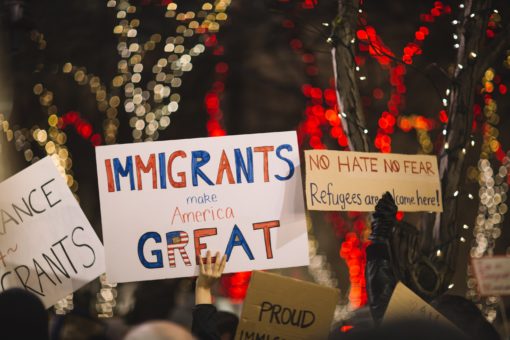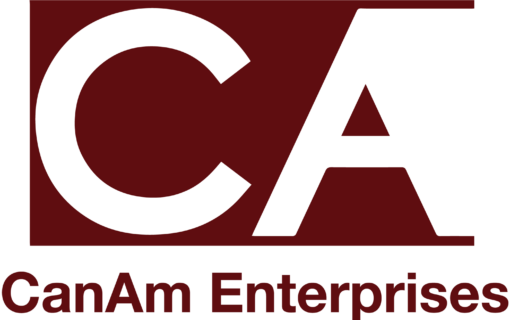Director of South Asia and the Middle East
CanAm Investor Services
 The United States of America has welcomed millions of immigrants from various countries over the years to study, work, build and expand business. However, the ongoing COVID-19 pandemic has influenced the US government to revisit immigration policies to maintain an economic balance in the country. As per the amended rule The United States of America suspended new H1B visas until the end of 2020 in a duly signed executive order on 22nd June 2020. The ban restricts foreign nationals from accessing the available temporary employment-based visas such as H1B, H4, L Visas, H-2B. The order also extended the green card ban enacted in April until 31st December. Every year The United States becomes home for skilled IT professionals from across the globe that are employed in key positions across multinational companies. The US government has taken these steps to protect jobs of US citizens and aid recovery from the losses incurred in the light of this pandemic.
The United States of America has welcomed millions of immigrants from various countries over the years to study, work, build and expand business. However, the ongoing COVID-19 pandemic has influenced the US government to revisit immigration policies to maintain an economic balance in the country. As per the amended rule The United States of America suspended new H1B visas until the end of 2020 in a duly signed executive order on 22nd June 2020. The ban restricts foreign nationals from accessing the available temporary employment-based visas such as H1B, H4, L Visas, H-2B. The order also extended the green card ban enacted in April until 31st December. Every year The United States becomes home for skilled IT professionals from across the globe that are employed in key positions across multinational companies. The US government has taken these steps to protect jobs of US citizens and aid recovery from the losses incurred in the light of this pandemic.
The radical changes made to the H-1B work visa norms, along with other visas will substantially affect the lives of thousands of immigrants eagerly waiting for a chance to live their American Dream. US executed the ban with immediate effect thus suspending the processing of all new H-1B, H-2B, J, and L visa categories. Along with this, people who didn’t have a valid non- immigrant visa as of 23rd June, and were not present in the US, will not be able to enter the United States until 31st December. However, H-1B, H-2B, J and L visa holders, and their spouse or children already present in the US have not been impacted by the new work visa ban.

This decision has significantly obstructed the employment structure and revenue margins for Indian IT companies that send highly skilled employees at low costs for client sites in the US. Although over the years these IT companies have started employing equal employment for locals, the dependency on H1-B visa holders is prominent. Indians will face a challenge in applying for H1-B and other visas as the delegation process would become tedious and lengthy. In turn, the overall impact on the aspiring immigrants will be harsher than expected since the visas will only process after December 2020. The major impact is on professionals who were channelling their immigration via sponsored routes, renewals and new employees. As a plan of action, a wise decision would be to invest in a green card friendly route so that the navigation into US becomes faster and easier, not only for the applicant but also their dependents.
While the ban may have created a slight hurdle for foreign nationals there are multiple alternatives to move to the US. Exploring other visa routes like investing in the EB-5 Visa program can protect immigrants with a long-term dream to settle in the US by securing a safe and quick route to permanent US residency. Since the EB-5 visa program is designed to drive foreign investment into the US and create jobs for US citizens, by default it is in line with the governments regulations and thus wouldn’t be impacted by a changing political, social or economic dynamic within the country. The EB-5 Green Card allows foreign nationals to live and work in the United States as a resident of the country and access benefits that others on non-immigrant visas cannot. Choosing the reputable EB-5 regional center operator, such as CanAm Enterprises that has over 30 years in administrating immigration-linked investment funds, is the starting point.
Although celebrated by many, the sudden ban has also been opposed by a large section of the society by terming it as a crippler of global operations of businesses that require overseas workers to flourish. International students would also have to reassess their strategy for studying in the US and then securing jobs when dependent on H1-B visas. Currently, it is in best interest of all applicants to evaluate the long-term benefits of their chosen route to the US and make a wise decision.

With three decades of experience promoting immigration-linked investments in the United States and Canada, CanAm has a long and established track record. Basing its business on a reputation of credibility and trust, CanAm has financed over 60 projects and raised $3 billion in EB-5 investments. More than $1.75 billion in EB-5 capital from over 3,500 families has been repaid by CanAm to date. CanAm exclusively operates seven USCIS-designated regional centers that are located in the city of Philadelphia, the Commonwealth of Pennsylvania, the metropolitan regions of New York & New Jersey, the states of California, Hawaii, Florida, and Texas. For more information, please visit www.canamenterprises.com.

